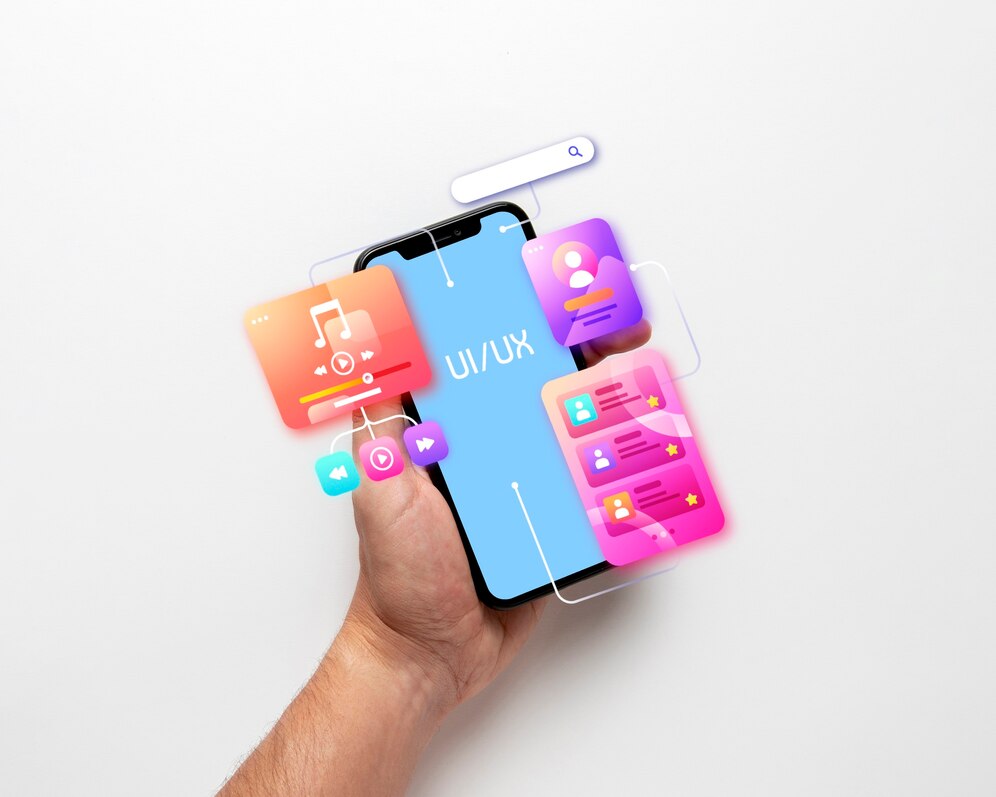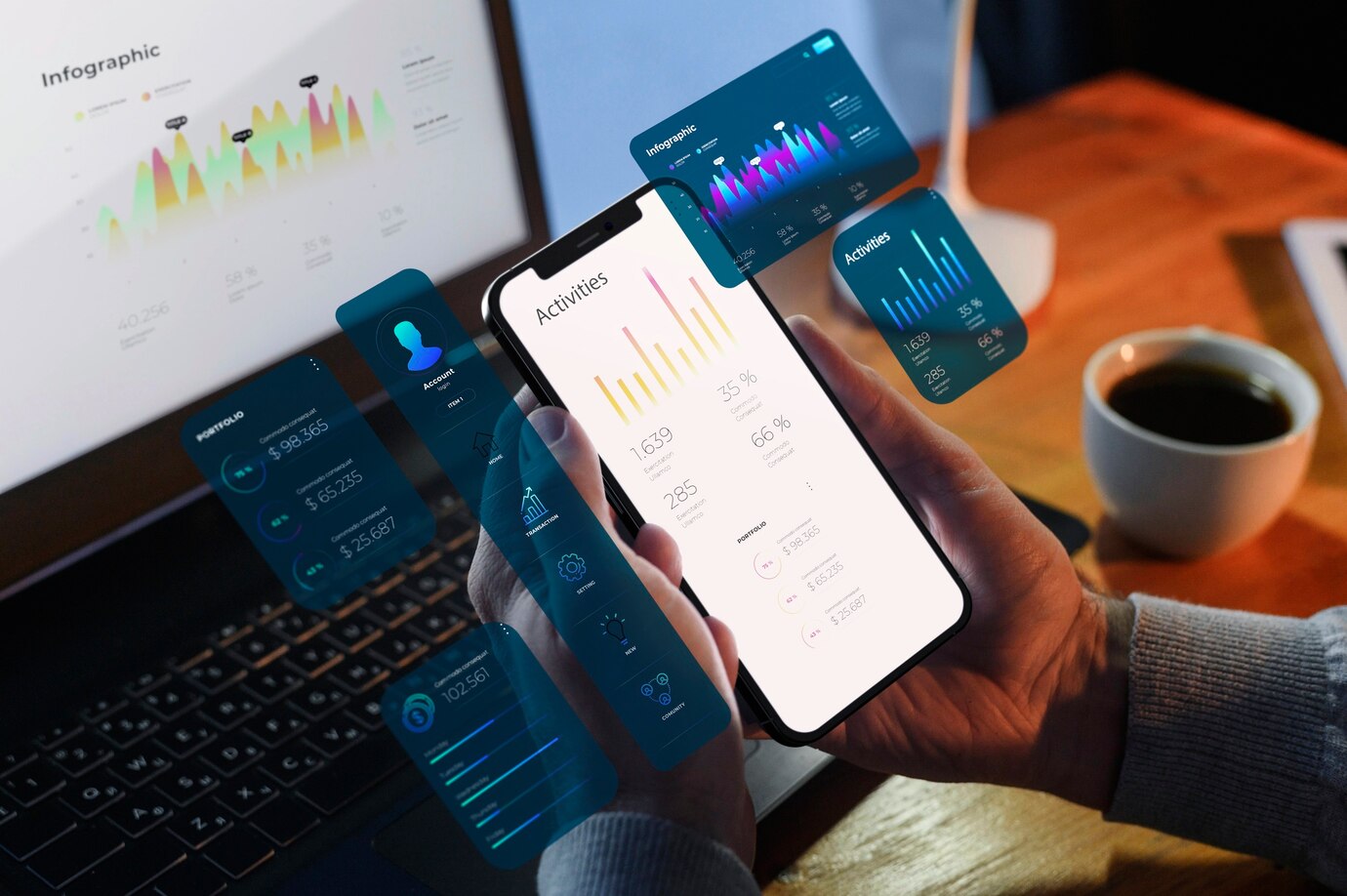How to Build a Mobile App for the Entertainment Industry
The entertainment industry has undergone a dramatic transformation with the rise of mobile technology . As the demand for digital entertainment grows, the need for engaging, functional, and user-friendly Mobile Apps has become more important than ever. Mobile App developers play a crucial role in creating apps that cater to the unique needs of this sector. Whether it’s a streaming service, a gaming app, or a ticketing platform, there are several factors to consider when building a Mobile App for the entertainment industry.
Understanding the Entertainment Industry's Needs

Before diving into development, it’s essential to understand the specific needs of the entertainment industry. This sector encompasses a wide range of verticals, from music and movies to gaming and live events. Each category has its own set of challenges, expectations, and user preferences that must be taken into account.
Mobile Apps in this industry often have to deal with high volumes of media files such as videos, audio, and images. They must also offer seamless integration with social media platforms, payment gateways, and content management systems. This requires a deep understanding of the technological and creative demands that the entertainment industry poses, and mobile app developers must be equipped to meet these challenges.
Choosing the Right Type of Entertainment App

Mobile Apps for the entertainment industry can serve various functions, from providing access to media content to enhancing the user experience through interactivity. There are several types of apps that are commonly developed for this sector.
Streaming apps, for instance, are among the most popular entertainment apps. They allow users to stream music, TV shows, movies, and live events. Popular platforms like Netflix, Spotify, and YouTube are examples of how streaming services have revolutionized content consumption. For Mobile App developers, creating a streaming platform requires not only an intuitive user interface (UI) but also the integration of advanced backend systems to ensure smooth playback and minimal buffering.
Gaming apps are another significant part of the entertainment sector. Mobile gaming has become a multi-billion-dollar industry, and developers are constantly striving to create engaging, immersive experiences. From simple puzzle games to complex role-playing games (RPGs), developers must ensure that the game mechanics are smooth, and the UI is user-friendly. With the advent of augmented reality (AR) and virtual reality (VR), the possibilities for Mobile gaming are expanding rapidly.
Ticketing apps also play an essential role in the entertainment industry. These apps allow users to buy tickets for concerts, theater performances, sports events, and more. Mobile App developers must prioritize security and ease of use when creating ticketing systems to ensure a hassle-free experience for users. Integration with payment systems and real-time updates are also key features for such apps.
Designing for User Experience (UX)

The success of any Mobile App hinges on its ability to offer a seamless and enjoyable user experience. For entertainment apps, this is even more critical as users expect a highly engaging and responsive experience. Mobile App developers must focus on creating a design that is visually appealing, intuitive, and easy to navigate.
The entertainment industry thrives on visuals. Whether it’s movie posters, album covers, or game graphics, the design should reflect the essence of the content. Clear, high-quality visuals that load quickly are essential for keeping users engaged. Additionally, the layout should be simple yet engaging, allowing users to find content effortlessly.
User interface (UI) design should prioritize ease of navigation. For instance, a video streaming app should have clearly defined sections for browsing, searching, and accessing favorite content. In gaming apps, the controls should be responsive, and the game environment should be immersive yet easy to explore. The overall goal is to ensure that users can interact with the app without feeling overwhelmed by complex features or confusing designs.
Integrating Features and Functionalities

In addition to a well-designed UI, entertainment apps must include specific features and functionalities that enhance the user experience. Mobile App developers should carefully select the features that align with the app’s purpose and target audience.
For streaming apps, high-quality video and audio streaming capabilities are non-negotiable. To provide a superior experience, developers must optimize the app to support various screen sizes and internet speeds. They should also include features like offline downloads, subtitles, and customizable playlists. Social media integration can be a valuable addition, allowing users to share their favorite content or recommend shows to friends.
For gaming apps, interactivity is key. Mobile App developers must ensure that users can easily connect with other players, whether through multiplayer features or social sharing options. Real-time communication tools, leaderboards, and reward systems can further enhance the gaming experience. AR and VR capabilities are also becoming increasingly important, allowing users to immerse themselves in lifelike game environments.
Ticketing apps need to provide secure payment options, real-time updates on event availability, and push notifications to alert users about ticket availability or event changes. The ticket purchasing process should be as simple and straightforward as possible, requiring minimal steps for completion.
Developing and Testing the App

Once the design and features are in place, the next step is development. This stage involves writing the code, integrating the app with necessary APIs and databases, and ensuring that the app functions properly on various devices. Mobile App developers must choose the right development tools and programming languages based on the app’s requirements and platform compatibility.
Testing is a crucial part of the development process. Given the complexity of entertainment apps, thorough testing is necessary to ensure that the app works seamlessly across different devices, operating systems, and network conditions. Mobile App developers should conduct both functional testing (to ensure features work as intended) and performance testing (to evaluate the app’s speed and responsiveness).
Optimizing for Performance and Scalability

For entertainment apps, scalability is crucial. As the number of users grows, the app should be able to handle increased traffic without compromising performance. Mobile App developers must ensure that the app is built with scalability in mind, optimizing it to perform well under high demand. Server infrastructure should be robust enough to handle large amounts of data, and cloud-based solutions can be used to facilitate seamless scaling.
Additionally, optimizing the app for performance is vital. Lagging, buffering, or slow load times can quickly drive users away. Mobile App developers must ensure that the app runs smoothly across different devices and network conditions.
Conclusion

Building a successful Mobile App for the entertainment industry requires a deep understanding of the target audience, an engaging and user-friendly design, and advanced technical capabilities. Mobile App developers play a pivotal role in bringing these apps to life. By focusing on user experience, integrating the right features, and optimizing for performance and scalability, developers can create entertainment apps that keep users entertained and coming back for more. The future of entertainment lies in Mobile Apps, and mobile app developers will continue to shape that future with their creativity and expertise.






